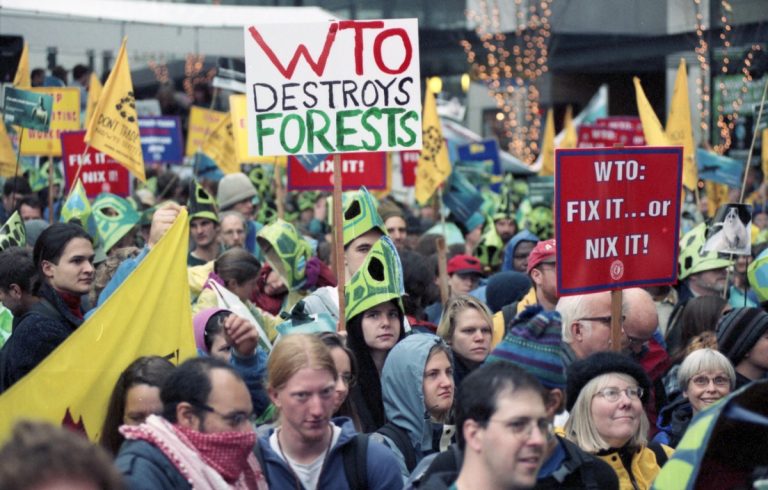Published on December 5, 2019

An array of issues brought tens of thousands of protesters to Seattle 20 years ago Saturday, with one unifying theme: concern that the World Trade Organization, a then-little-known body charged with regulating international trade, threatened them all.
With their message amplified not just by their numbers, but by the response of overwhelmed police who fired tear gas and plastic bullets, the protesters delayed the WTO’s conference and raised awareness of the international trading system and its implications for the environment, labor standards and human rights.
While many of the problems they identified are unsolved two decades later, some still credit the protest with restoring a sense that mass demonstrations and civil disobedience can effect change.
James Gregory, a University of Washington history professor who specializes in labor issues, said the most lingering effects of the WTO protests might be the connection of the labor and environmental movements and a reawakening of progressivism.
In Seattle, a vast campus for Amazon — a poster child for global capitalism — has emerged. But Gregory noted the city retains a strong progressive streak that has made it a national leader on workers rights, including a $15 minimum wage and paid leave requirements.
The legacy of the WTO protests may be partly to thank, he said.
Continue reading at the Associated Press.
Originally written by Gene Johnson for the Associated Press.